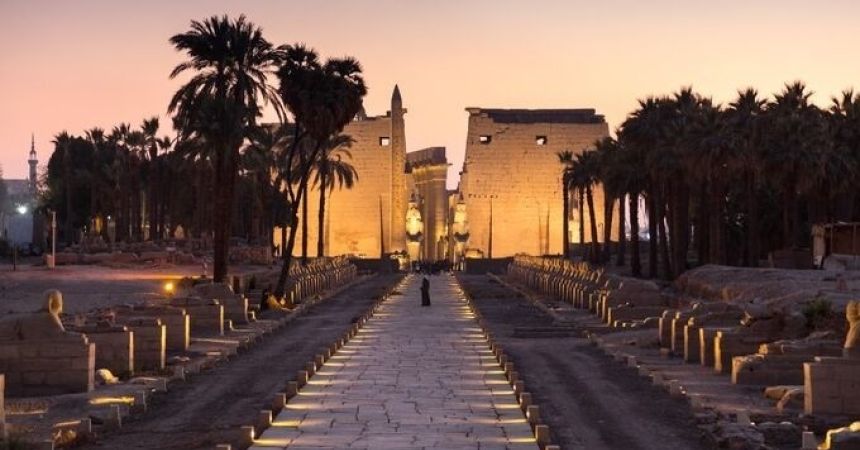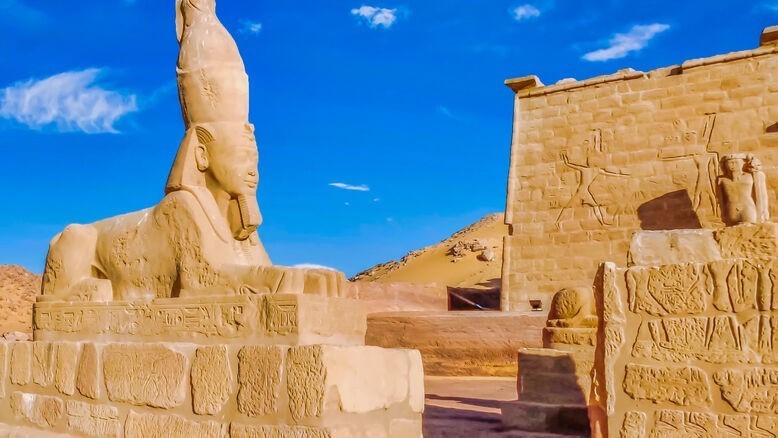
How Long to Spend in Egypt: Itineraries for First-Timers
Egypt, a land of timeless wonders and profound history, offers an array of experiences that can cater to diverse interests. For first-time visitors, planning the perfect Egypt travel itinerary can be challenging given the country's rich tapestry of ancient monuments, vibrant cities, and serene landscapes. This comprehensive guide will help you navigate Egypt's must-see attractions and decide how long to spend in this captivating destination.
Discover Egypt: How Many Days Needed
1.1. A Brief Overview
Egypt, located in northeastern Africa, is a country synonymous with ancient civilization. Its treasures include monumental pyramids, grand temples, and a cultural legacy that spans thousands of years. The combination of historical marvels and modern attractions makes Egypt an unparalleled destination for travelers.
1.2. Geography and Climate
Egypt is characterized by its arid desert landscape, with the Nile River serving as a lifeline that divides the country into two distinct regions: the fertile Nile Valley and the surrounding deserts. The climate is predominantly hot and dry, with mild winters and scorching summers, especially in the southern regions.
1.3. Travel Considerations
When planning your trip to Egypt, consider the following factors:
- Visa Requirements: Most visitors will need a visa, obtainable from Egyptian consulates or upon arrival at designated airports.
- Health Precautions: Ensure vaccinations are up-to-date and take precautions to avoid food and waterborne illnesses.
- Safety: Egypt is generally safe for tourists, though it's wise to stay informed about local conditions and adhere to travel advisories.
Essential Experiences in Egypt
2.1. The Pyramids of Giza
The Pyramids of Giza are Egypt's most iconic landmarks. They are located on the Giza Plateau, just outside Cairo, and include the Great Pyramid of Giza, the Pyramid of Khafre, and the Pyramid of Menkaure. The nearby Great Sphinx of Giza is also a major highlight.
2.1.2. Must-See Features in Egypt
- Great Pyramid of Giza: The largest and oldest of the pyramids, originally standing at 146 meters (481 feet).
- Great Sphinx: A colossal statue with the body of a lion and the head of a pharaoh, symbolizing strength and wisdom.
2.2. Luxor and the Valley of the Kings
Luxor, often referred to as an open-air museum, is home to some of the most well-preserved monuments of ancient Egypt. The Valley of the Kings, located on the west bank of the Nile, was the burial place of numerous pharaohs.
2.2.2. Must-See Features
- Karnak Temple: A vast temple complex dedicated to the god Amun-Ra.
- Valley of the Kings: Includes notable tombs such as that of Tutankhamun and Ramses VI.
- Hatshepsut Temple: An impressive mortuary temple dedicated to Queen Hatshepsut.
2.3. Aswan and Abu Simbel
Aswan, located in southern Egypt, offers a tranquil contrast to the bustling cities. It serves as a gateway to the spectacular temples of Abu Simbel, which were relocated to avoid flooding from Lake Nasser.
2.3.2. Must-See Features
- Philae Temple: Dedicated to the goddess Isis, relocated to Agilkia Island.
- Abu Simbel Temples: Massive rock-cut temples built by Ramses II, featuring colossal statues of the pharaoh.
2.4. Cairo
Cairo, Egypt's capital, is a bustling metropolis with a rich history and modern vibrancy. It is home to numerous museums, historical sites, and vibrant markets.
2.4.2. Must-See Features
- Egyptian Museum: Houses an extensive collection of artifacts, including the treasures of Tutankhamun.
- Islamic Cairo: Features historic mosques and architectural landmarks.
- Khan el-Khalili Bazaar: A bustling market offering everything from spices to jewelry.
Itineraries for First-Time Visitors
3.1. 3-Day Itinerary: A Whirlwind Tour
Day 1: Cairo
- Morning: Visit the Pyramids of Giza and the Great Sphinx. Consider a camel ride for a unique perspective.
- Afternoon: Explore the Egyptian Museum to see the treasures of Tutankhamun and other artifacts.
- Evening: Stroll through the Khan el-Khalili Bazaar and experience the vibrant atmosphere.
Day 2: Luxor
- Morning: Fly to Luxor and visit Karnak Temple, one of the largest temple complexes in Egypt.
- Afternoon: Explore the Valley of the Kings, including the tomb of Tutankhamun.
- Evening: Enjoy a sunset cruise on the Nile River or visit Luxor Temple.
Day 3: Aswan
- Morning: Take a flight or train to Aswan. Visit the Philae Temple on Agilkia Island.
- Afternoon: Explore the Nubian Village to experience local culture.
- Evening: Return to Cairo or continue your journey.

3.2. 5-Day Itinerary: A Deeper Exploration
Day 1: Cairo
- Morning: Visit the Pyramids of Giza and the Great Sphinx.
- Afternoon: Explore the Egyptian Museum and Islamic Cairo.
- Evening: Enjoy a traditional Egyptian meal and explore the local nightlife.
Day 2: Luxor
- Morning: Fly to Luxor and visit Karnak Temple.
- Afternoon: Explore the Valley of the Kings and the Temple of Hatshepsut.
- Evening: Relax with a Nile River cruise or visit Luxor Temple.
Day 3: Aswan
- Morning: Travel to Aswan and visit the Philae Temple.
- Afternoon: Explore the Nubian Village and enjoy a felucca ride on the Nile.
- Evening: Consider an overnight stay at a Nile cruise boat or local hotel.
Day 4: Abu Simbel
- Morning: Take an early morning trip to Abu Simbel to explore the grand temples of Ramses II.
- Afternoon: Return to Aswan and visit the High Dam and Unfinished Obelisk.
- Evening: Enjoy a relaxing evening in Aswan.
Day 5: Cairo
- Morning: Return to Cairo and visit any missed sites or enjoy a leisurely day.
- Afternoon: Last-minute shopping or exploring.
- Evening: Prepare for departure or extend your stay.
3.3. 7-Day Itinerary: An In-Depth Adventure
Day 1: Cairo
- Morning: Arrive in Cairo and visit the Pyramids of Giza and the Great Sphinx.
- Afternoon: Explore the Egyptian Museum.
- Evening: Discover the vibrant atmosphere of Khan el-Khalili Bazaar.
Day 2: Cairo
- Morning: Visit the Citadel of Saladin and the Mosque of Muhammad Ali.
- Afternoon: Explore Coptic Cairo, including the Hanging Church and the Coptic Museum.
- Evening: Enjoy a traditional dinner and cultural show.
Day 3: Luxor
- Morning: Fly to Luxor and visit Karnak Temple.
- Afternoon: Explore the Valley of the Kings and the Temple of Hatshepsut.
- Evening: Consider a felucca ride on the Nile or a visit to Luxor Temple.
Day 4: Luxor and the West Bank
- Morning: Visit the Colossi of Memnon and the Mortuary Temple of Amenhotep III.
- Afternoon: Explore the Ramesseum and other West Bank sites.
- Evening: Relax with a Nile River cruise or enjoy local dining.
Day 5: Aswan
- Morning: Travel to Aswan and visit the Philae Temple.
- Afternoon: Explore the Nubian Village and visit the Aswan High Dam.
- Evening: Enjoy a relaxing evening on the Nile.
Day 6: Abu Simbel
- Morning: Take an early morning trip to Abu Simbel.
- Afternoon: Return to Aswan and explore any remaining sites or enjoy leisure time.
- Evening: Consider a dinner cruise or local dining experience.
Day 7: Cairo
- Morning: Return to Cairo and visit any missed sites or enjoy a leisurely day.
- Afternoon: Last-minute shopping or exploring.
- Evening: Prepare for departure or extend your stay.
Tips for First-Time Visitors for Egypt
4.1. Best Time to Visit
The ideal time to visit Egypt is during the cooler months, from October to April. This period offers more comfortable temperatures for exploring historical sites and enjoying outdoor activities.
4.2. Cultural Etiquette
- Dress Code: Dress modestly, especially when visiting religious sites. Women should cover their shoulders, and men should avoid wearing shorts in such places.
- Respect Local Customs: Always ask permission before taking photographs of people, and be mindful of local customs and traditions.
4.3. Transportation
- Domestic Flights: Consider flying between Cairo, Luxor, and Aswan to save time.
- Trains: Trains are a convenient option for traveling between major cities.
- Local Transport: Taxis, ride-hailing apps, and private tours are common options for local transportation.
4.4. Accommodation
Egypt offers a range of accommodation options, from budget hostels to luxury hotels and Nile cruise boats. Consider staying in central locations for easy access to major attractions.
4.5. Health and Safety
- Stay Hydrated: Drink bottled water and avoid consuming tap water.
- Travel Insurance: Purchase comprehensive travel insurance to cover medical emergencies and trip disruptions.
Perfect Egypt Holidays for Every Explorer
Egypt's rich history, breathtaking landscapes, and vibrant culture offer an unforgettable experience for first-time visitors. Whether you have three days or two weeks, carefully planned itineraries ensure that you capture the essence of this extraordinary destination. By understanding the highlights and practicalities of travel in Egypt, you can craft a journey that will leave you with lasting memories and a deeper appreciation for this land of ancient wonders and timeless mysteries.



